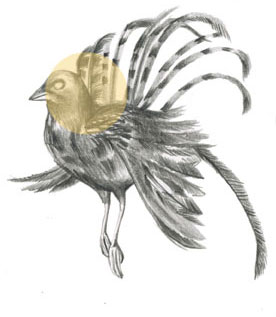From The New Humanist, Christopher Lane argues that doubt is good for us. Lane is author of the new book, The Age of Doubt: Tracing the Roots of Our Religious Uncertainty. In this essay, adapted from the book, Lane argues for an agnostic perspective - he quotes American playwright John Patrick Shanley: “doubt requires more courage than conviction does, and more energy; because conviction is a resting place and doubt is infinite – it is a passionate exercise.”
Read the whole article.The benefit of doubt
"New Humanist is unusual, interesting, lively and intelligent"– Philip Pullman. Get our print magazine delivered direct to your door 6 times a years for just £21 (£25 outside UK), and support the spread of reason. Subscribe today.Our culture has become impoverished by certainty. In our overheated climate of polarised public debate, we give less credence to uncertainty; yet the crises that preoccupy us – including religious extremism – demand that we tolerate increasing amounts of it.
Doubt and its religious cousin agnosticism, a word rarely heard nowadays, may have fallen out of fashion, but they have much to teach us, despite the disdain of Richard Dawkins, who famously wrote in The God Delusion: “I am agnostic only to the extent that I am agnostic about fairies at the bottom of the garden.” He also quotes approvingly Quentin de la Bédoyère, science editor of the Catholic Herald, who in 2006 wrote that the Catholic historian Hugh Ross Williamson respected firm religious belief and certain unbelief, but “reserved his contempt for the wishy-washy boneless mediocrities who flapped around in the middle.”
To see doubters and freethinkers such as Herbert Spencer, Leslie Stephen, George Eliot, Thomas Huxley (who coined the word “agnostic”) and Darwin himself mocked in this way, given their intense engagement with complex human issues, only highlights the boldness of their thinking and the intellectual hubris of today’s unbridled certainty. The stridency of both Dawkins and de la Bédoyère misses how these and other Victorian intellectuals saw doubt as a creative force – inseparable from belief, thought, and debate, and a much-needed antidote to fanaticism and zealotry.
Ironically, it was the Victorians, often dismissed as prudish and uptight, who led the way to an open-mindedness and engagement with ambiguity that stands in stark contrast to the impoverishment of contemporary thinking about religious doubt and belief. The debates about religion and science that flared in the 19th century predate by almost two centuries the “new” atheism that has evolved today, undermining many of its claims for originality. As one scholar describes the Victorian era, “Never has an age in history produced such a detailed literature of lost faith, or so many great men and women of religious temperament standing outside organised religion.”
In fact, that explosion of religious doubt developed into a powerful cultural force. For the first time in history, doubt became a serious, widespread concern. It galvanised cultural debate and scientific inquiry. It inspired sermons, plays, and articles. It even rose to the level of a popular philosophy.

No comments:
Post a Comment